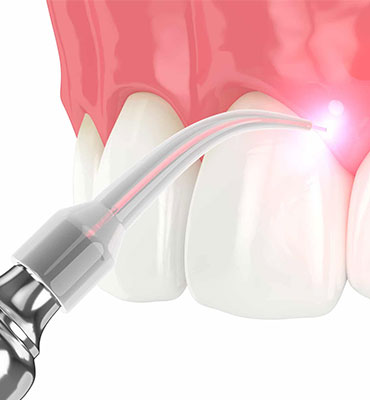
Contact Us
- The Cliniq. 37-A, Bay City Center, C.V. Raman Road, (Above Lakme Beauty Saloon), Alwarpet, Chennai - 600018.
- baeldentistry@gmail.com
-
+91 95660 28728
044 24662350

You may be concerned about pain or discomfort if you are considering seeing a laser dentist for treatment. After all, many people recall their dentist using a drill at some time throughout their treatment.
This may lead you to ask whether a laser is more painful than a drill. Because lasers are frequently seen cutting through wood or metal, you might be concerned that they could harm your teeth or gums.
Laser dentistry, on the other hand, allows dentists to be more precise during operations. It is also less painful than conventional treatment.

Dental lasers address problems by focusing a very small but concentrated beam of light energy. A dental laser is simple to use and allows a laser dentist to conduct a wide range of dental operations with greater precision.
The type of laser the dentist will employ is also determined by the type of therapy. A hard tissue laser or a soft tissue laser will be chosen.